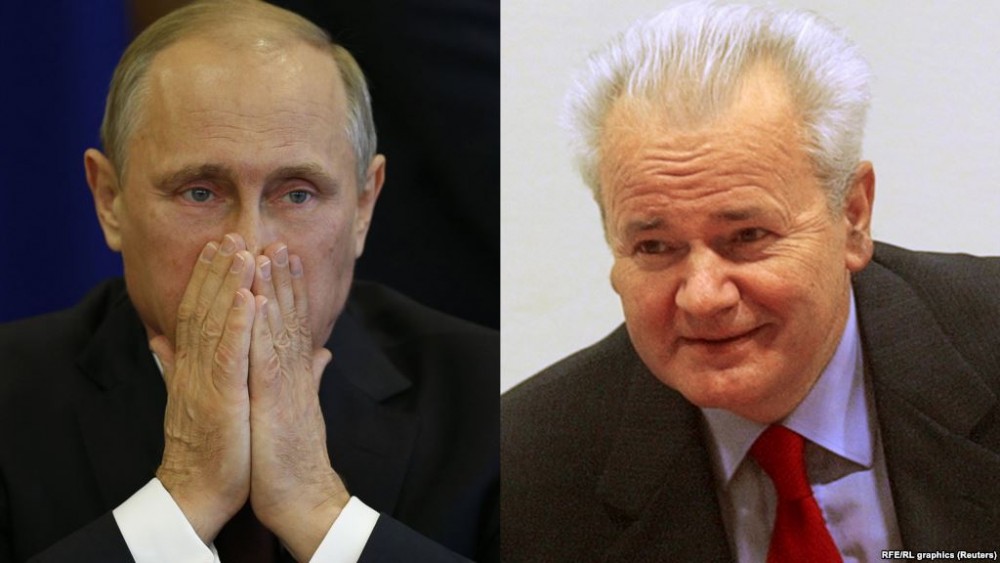The decision by Russian President Vladimir Putin to classify all information about military personnel who die in peacetime remains one of the most important topics of the past week. Why did Putin sign that decree? Is he preparing for war or is he simply irritated by the constant search for the graves of soldiers who have died in Ukraine, by articles in opposition media, and by the claims of human rights activists?
The answer can be found in the text of the decree. Putin is not preparing for war. He is preparing for "hybrid war." It is precisely that kind of war -- as events in Crimea and the Donbas have illustrated -- that has become his main instrument for demonstrating his political influence. With the help of "hybrid war" it is possible to capture foreign territory almost with impunity -- so that the international community can limit itself to condemnation and economic sanctions. With the help of "hybrid war" it becomes possible to destabilize a hostile country -- exactly what Putin needs in Ukraine. And then after the "hybrid war" it is possible to declare a "hybrid peace," which can also be a tool for destabilization.
The only thing that can interfere with Putin's plans is the fact that soldiers also die in a "hybrid war." Because this is not a war game. It is a real war with battles and casualties. And Russian society will not be able to ignore the coffins and the funerals for long. This is why the decision was made to classify information. It really unties the government's hands. And it indicates that there will be more "hybrid wars." And not only in Ukraine. Putin may be preparing for special new destabilizing situations in neighboring countries. If his plans include the creation of the "Russian World" consisting of large areas of Ukraine, Belarus, Kazakhstan and possibly the Baltic countries as well, then he needs "hybrid war." After all, Slobodan Milošević, who promised his fellow citizens that all Serbs would soon live in one state, created his "Serbian World" with the help of the same kind of war.
Putin's promises do not differ much from the ideas of his old friend from Belgrade. It is true that such plans usually have the same conclusion. And then, as a rule, no military secret is of any help.




